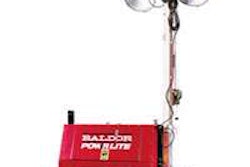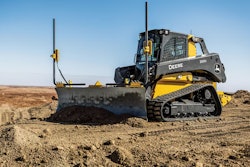 Making it work
Making it work
By Kirk Landers
The summer of our recessionary discontent kicked off in July with the Obama Administration announcing it wanted to postpone the federal transportation debate for 18 months. The Senate leadership quickly fell into the fold and we are stuck with an extension of SAFETEALU, a grossly inadequate program and an even worse acronym.
Soon after this, the Texas Transportation Institute issued its latest study of congestion trends which produced the usual spate of publicity about gridlocked roads.
What was different this time around was that mass transit advocates seized a lot bigger share of the media sound bites than usual, and the message delivered by several was a divisive one: America needs to put less money into roads and more money into public transportation.
Hopefully, this message was simply the personal opinions of the various academics sought out for comment, and not a strategy by the public transportation lobby. In addition to being divisive, it is an exceptionally myopic viewpoint that might make sense to theorists but makes none at all to people who actually have to solve transportation problems.
Public transportation in general and mass transit in particular have an important place in the scheme of getting American’s from point A to point B, but it is a limited one. It works best in areas with high population densities and not at all in areas with low population densities. The vast majority of ridership takes place in rush hour; mass transit has little value as a form or transportation in off hours in most parts of the country. And public transportation contributes to commercial goods movement only to the extent that it takes cars off the roads in metropolitan areas so that truck traffic moves more freely.
But public transportation’s greatest limitation in this era of “sustainability” is that it doesn’t pay for itself.
Passenger fares do not cover the cost of operating buses or rail lines, let alone the capital costs. Every public transportation system in the country is subsidized by city and state taxpayer dollars. None of the funding for building new rail lines comes from transit users; much of it comes from the federal fuel tax, and the rest from state and local tax payers.
Even with all the subsidies, most public transportation systems in the country struggle endlessly to maintain levels of service without raising fares to burdensome levels.
My point isn’t that public transportation is a bad thing. My point is that public transportation is a very limited solution to congestion and it is economically dependent on motorists, among others, for its continuing viability.
If I were a member of the public transportation lobby, I would not be arguing against investment in roads, I would be holding hands with the road lobby and working night and day for a big increase in the federal fuel tax and a consequent kick in federal transit money. I would be especially sensitive to the wants and needs of senators and congressmen from rural states, where there is no “mass” for mass transit. These states have a lot of votes to cast on big spending bills, and if the next transportation act is going to bring with it an increase in revenues, public transportation, like roads, will need every vote it can get.
Highway and public transportation interests have been allies, if not loving bed fellows, in the past several federal transportation debates. We need each other. Public transportation needs the money that comes from highway users, and the votes that road programs generate in Congress. Highways need public transportation for image, and for the voting support transit gets from urban centers and environmentalists.
It has been a pragmatic, ethical and effective alliance in the past. We need it more than ever now, so let’s keep it together.











